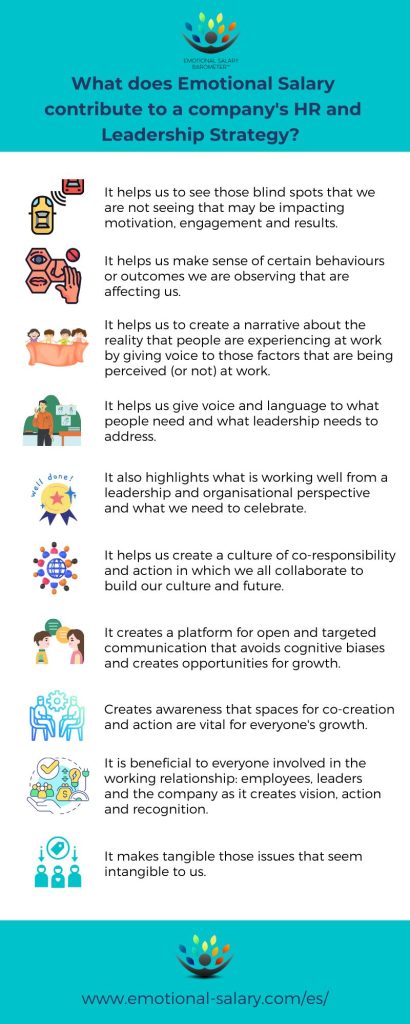I recently had a conversation with someone who told me she was leaving her job after 15 years. Basically, it was the company that had trained her professionally and where she had grown and developed professionally throughout her working life. She started almost at the end of her career and after two children, many promotions, several corporate restructurings, cultural changes and changes of leaders, she decided to take this step at the age of 40. She negotiated her exit in such a way that she felt very comfortable with her financial settlement. This is always reassuring.
When she calls me, it is 4 months since she left her company and she calls me because she regrets having made this decision. And she doesn’t understand what made her do it. What had happened? It was what usually happens when we do something for a long time. And in the workplace this happens much more often than we think.
Let’s look at the main psychological theories that lead us to make decisions that we sometimes regret, and that we need to be aware of because they play a relevant role in the way we approach our work.
 The theory of hedonic adaptation
The theory of hedonic adaptation
The theory of hedonic adaptation is the observed tendency of humans to quickly return to a relatively stable emotional level despite any positive or negative event or change in life. What this theory means is that after repeated exposure to the same stimuli that produce certain emotions, we tend to experience fewer of those emotions. Simply put, we get used to the good things that happen to us and over time we stop seeing them. For example, if my job offers me fruit every day, over time I will stop seeing or appreciating this benefit. It will become as common and normal as anything else my job might offer me.
The funny thing is that when the fruit is taken away, we will miss it and appreciate it again when we have it again. While hedonistic adaptation provides unparalleled resilience and keeps us on the lookout for bigger and better things, it also makes us constantly dissatisfied. We stop seeing the positive and start complaining. Fighting hedonistic adaptation is therefore a psychological imperative if we are to maximise our wellbeing and, in turn, the opportunities and benefits of our work.
 The theory of cognitive bias and narrative fallacies (Daniel Kahneman – Thinking Fast and Slow).
The theory of cognitive bias and narrative fallacies (Daniel Kahneman – Thinking Fast and Slow).
We are far less rational and accurate in our thoughts, judgements and perceptions than we would like to believe or give ourselves credit for. We all have cognitive biases. Cognitive bias is a limitation to objective thinking caused by the human brain’s tendency to perceive information through a filter of personal experience and preferences. Humans constantly deceive themselves by constructing flimsy stories that we believe to be true. We tend to exaggerate the consistency of our judgements, both good and bad. Most of the stories we tell ourselves about our work are largely illusory. For example, I often hear people say “I hate my job!” when in fact they have had an argument with their boss, but it is not because of that argument that ALL of their work is negative and detestable. It may be that they need to improve their communication with that boss in particular, but they don’t necessarily need to change their job because there may be other things that they really appreciate and like about their job. In order to think clearly about the future, we need to adjust the language we use to label the beliefs we held in the past. We believe the Emotional Salary Barometer is an excellent tool for doing just that.
 Negativity bias
Negativity bias
The negativity bias or negativity effect is the tendency to give more weight to the negative aspects of a particular event, person or situation. It is the fact of giving more importance to negative stimuli than to those that may be positive or neutral. This psychological phenomenon is also known as positivity-negativity asymmetry and has a significant impact on our daily lives. Any negative experience we have at work will always carry more weight than any positive experience we may have at work. Think of that day at work when something did not go as well as we would have liked. For most people, this event will colour their entire work experience. It is like a drop of ink in a pitcher of clean water. As we all know, one drop of ink turns all the water grey.
Numerous studies and research in positive psychology tell us that when we are aware of what we have, we create more success in all aspects of our lives (well-being, relationships, optimism, physical and mental health, self-control, etc.). In other words, being aware of and appreciating what we have serves as an antidote to the hedonistic adaptation and cognitive biases we discussed earlier. In fact, when we practice and take the time to consider and appreciate what we have, we re-evaluate what we have and new possibilities emerge within us that lead to greater satisfaction and therefore greater success.
How can I become aware of my Emotional Salary in my current job?
You can use the Emotional Salary Barometer to get a clear and objective view of your Emotional Salary in your current job. You will receive your personalised results and an individual action plan to help you take the first steps towards making a conscious decision about your future career.
Another simple way to find out your Emotional Salary is to take pen and paper and write down all the emotional benefits you get from your job. If you have trouble coming up with some, take a look at the 10 factors that make up the Emotional Salary and think about how they relate to your work. Here are some more specific examples to give you some ideas:
- Travelling to different countries and visiting places I wouldn’t normally visit helps me to learn and grow as a person;
- Working with people I get on well with and making great social connections with people I wouldn’t have met otherwise;
- Helping our customers solve their problems, which in turn makes their lives easier, so I know I am making a difference to many people’s lives;
- Having a structure during the day that allows me to have a work context and develop my strengths, talents and skills.
What is the point of considering Emotional Salary if you are thinking of leaving your job?
One of the main objectives we had in carrying out an in-depth study of what the Emotional Salary is, analysing the factors that make it up and developing a tool that allows people, teams or organisations to see all the factors that they also perceive about work, is to help people, leaders and organisations to have a more complete vision of their work and what work can bring in terms that go beyond the purely financial. The aim is to enable them to explore, measure and analyse these other aspects of work that are not so obvious but which have a profound impact on how we feel at work, on our performance, motivation, engagement and the way we relate to each other at work.
This analysis and exploration allows both individuals and leaders or organisations to gain clarity and see work in all its lights, shadows and colours. That is, in all its dimensions: social, personal, professional and transcendental. And to learn how to create shared solutions and strategies that allow everyone to grow. This new vision of work not only gives us a new vision of work, but also makes our role and participation in it much more proactive, humane and integral.
It often happens that when we feel frustrated or overwhelmed at work, we only see one side of the coin. Our brain takes a cognitive shortcut (the cognitive bias we talked about earlier) and gives us the easiest solution, but often not the best one for us. It is as if we only see the job in one dimension and fail to see all the other facets that make up the job and which also have a very strong impact on us. For example, in the case of my friend, she felt that “something was missing”. When she did the Emotional Salary Barometer retrospectively, she realised that the factor she was missing most was inspiration. Specifically, she felt that in her work she had stopped connecting with people who gave her a sense of hope, possibility and opportunity. She told me that by knowing that this was the factor she was missing, she was able to give a name and voice to her feeling, and that if she had known this earlier, she would have been able to take the necessary steps to change her work.
If we can give voice to the things that we feel are important and necessary to us, and if we can analyse and measure them, then we can be more proactive in taking the necessary actions and creating opportunities to address them. I see this all the time in my work.
Analysing your Emotional Salary does not change your work, what it does change is your perspective on it, opening up the range of possible actions and inviting you to see opportunities to manage it. Both as an individual and as a leader of a team or organisation.
As leaders, this more holistic view of the working relationship opens us up to co-creation, active listening and the constant generation of ideas that allow us not only to achieve organisational goals, but also to create workplaces where people feel that the time they spend at work is time well spent for everyone.
 Thinking of quitting your job? Don’t make a decision before taking the Emotional Salary Barometer.
Thinking of quitting your job? Don’t make a decision before taking the Emotional Salary Barometer.
The Emotional Salary Barometer will help you get an objective perspective on all the non-financial benefits you receive from your job that you may not have thought about because you have never considered or taken them into account, and it is only when you no longer have them that you may start to miss them. All our lives we have been conditioned and trained to see work as having only one purpose and that is financial. I am not saying or implying that the financial aspect is not important. On the contrary, it is vital, essential and necessary.
However, there are certain aspects of our work that we are not aware of because we have not been trained to see them, we do not have the language to see them and therefore we are not aware of them and therefore we do not see them. These aspects are just as important and necessary as the economic aspect and they make our daily work and the time we invest in it something that is valuable, that we feel is time well spent and that it gives us value beyond the financial aspect.
By taking the Emotional Salary Barometer you will be able to see exactly what aspect or aspects you are missing. And really see and explore opportunities that allow you to take action.
One final note
Let’s remember that every workplace is, or should be, a human community that has come together with the intention of satisfying a need and creating and developing a service or product to do so. The financial reward is the physical reward to the person for dedicating part of their time, part of their life, to contribute to the collaboration in the creation and development of that service or product. But let us not forget that the goal must always be the person and their development. The 10 factors of the Emotional Salary Barometer should be a fundamental element when we talk about work. They must be part of our culture, our strategies, our annual appraisals, our leadership, our development communication and our human resources development policies. We cannot and must not allow them to be ignored in this new era of work.